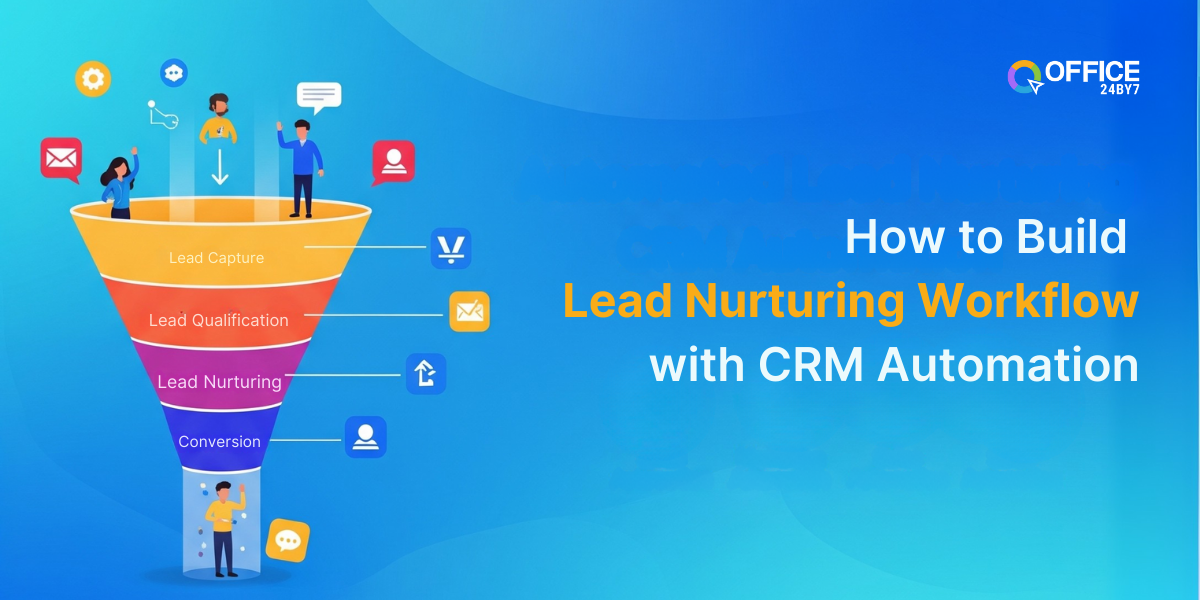
Cloud telephony is the next-generation technology being adopted by businesses these days. Business communication is now much more accessible than it was before with the use of cloud telephony services. This has made a global trend to switch to cloud telephony.
Setting up a well-founded communications channel with partners, vendors, prospects, and customers is of the greatest importance for small businesses.
However, since small businesses have a small team, they find it difficult to manage phone calls, emails, text messages, etc altogether. This is even more difficult if the team has to work remotely.
In this backdrop, the switch to cloud telephony software proves to be a blessing. So what is this? How does it work, and what are its components of it? Let us discuss this in the blog post.
We will also discuss the top 15 benefits of cloud-based phone systems.
What is Cloud Telephony?
Cloud telephony is a virtual phone system that works through an internet connection. It is also known as a cloud phone system, VoIP (Voice over Internet Protocol), or virtual phone system.
There is no need for any hardware, nor is it located at one specific location. You can make and receive calls from any location or device.
A type of Unified Communications as a Service (UCaaS), cloud telephony software lets you move your phone system to the cloud. It lets your phone calls be connected to video meetings, sales CRM software, instant messaging, etc. This makes sure that your teams are well-connected.
What are the Components of Cloud Telephony?
Cloud telephony software has many important components to make an enterprise more efficient. The following are the critical components of any cloud telephony system:
Phone Numbers
Three main types of phone numbers make up a cloud telephony system:
- Virtual number
A virtual number software is a phone number used for call forwarding to a PRI Line in the data center.
- Toll-Free Number/ Toll Number
An atoll-free number is a phone number starting with codes — 800, 888, 877, 866, 855, 844, or 833, and customers calling this number are not billed (it’s free of cost).
- PRI/ Primary Rate Interface number
A PRI number is a phone number that allows 23 concurrent transmissions of voice, data, or video traffic between the network and the user.
Powerful Internet Connectivity
Powerful internet connectivity allows faster data transmission through phone calls and improves phone calls’ quality.
Servers
Servers with many PRI lines comprise cloud telephony services. These allow call recordings, IVR reporting, etc. These are hosted in a secure data center. Calls made to the number displayed on your website would be forwarded on PRI lines.
Agent numbers
Known as landing numbers or extensions, these are the phone numbers where the call comes.
IVR
IVR/Interactive Voice Response is built within cloud telephony that automates your business telephony system. It answers all the incoming calls automatically. It comprises a prerecorded voice message. Depending upon the menu options the customer selects, the call gets connected to an agent.
Endpoints
The endpoints that comprise cloud telephony are softphone apps, IP office phones, and mobile smartphones.
How does Cloud Telephony Work?
Cloud telephony works in such a way that the phone call from a customer is connected to an agent through the Internet. This software is designed to convert analog voice signals (a continuously and smoothly varying amplitude or frequency signal) to data packets. These data packets are transmitted to the receiver via an internet connection. The transfer is made through a PRI line linked to a cloud telephony server with a PRI card.
Drawbacks of Traditional Phone System
Back when cloud telephony software was not introduced, businesses would rely on traditional phone systems. It had a few advantages, like it required only a one-time large payment to purchase it, and the monthly charges were less.
However, a traditional or legacy phone system has many drawbacks compared to a modern cloud phone system. Here is a brief about them.
Too Costly
Traditional phone systems are way too costly compared to cloud telephony services. This is because the former requires hardware and installation equipment, both of which are expensive. Additionally, the upgradation of the traditional phone system with new features requires extra cost and is a very complicated process.
Entirely Dependent on Power Supply
Traditional phone systems completely depend on power supply. So, in case of power failure or power outages, these phone systems do not work and can get damaged, leading to the loss of sensitive business data that cannot be recovered.
Need for a Separate Telephone Line for Each Customer
Traditional phone systems are designed so that each customer requires a designated telephone line. If there is any need for any modification, a technician must visit the premises for it. It is pretty frustrating and time-consuming.
Lack of Mobility
Since traditional phone systems are on-premise, there is no mobility at a particular location where copper wires are connected to a telephone.
Poor Quality
Traditional phone systems risk hardware failure; the wires’ quality can be poor, giving a poor usability experience. Natural calamities can have a major impact, and you risk losing much.
What are the Top 15 Reasons Small Businesses Should Switch to Cloud Telephony?
A critical element of success for small businesses is voice communication. With voice communication, these businesses can securely communicate with customers, approach prospective clients, and operate their business.
The switch to cloud telephony can help such businesses effectively embrace the many benefits of voice communication. Here are a few top reasons small businesses should switch to cloud telephony.
Can Handle Large Call Volumes
Switch to cloud telephony provides an inbuilt IVR, that helps small businesses efficiently handle large incoming call volumes. Each call is handled consistently with an IVR systems that deals with all the incoming queries and then routes the call to the right agent. There is no longer a need for receptionists to handle many customers’ calls.
Is Flexible, Easy to Scale Up, and Easy to Set Up
Cloud telephony is more flexible, easy to scale up, and set up than traditional phone systems.
With an expansion of business, there is a need to scale up communication systems and hire new staff, plus new customers can be boarded. Switch to cloud telephony services, and you need not worry about this. You can add many extensions, accommodate high call volume, etc. It is also portable since it only requires an internet connection and a VoIP desk phone. The implementation of cloud telephony is also faster.
It is Reliable and offers Data protection and data recovery
Cloud telephony software is more reliable than traditional phone systems. It can keep your business running even when a disaster strikes, like natural calamities, cybersecurity attacks, and even human errors.
With disasters like the above, your business can run into risk, and you may stand to lose data and customers if you rely on traditional phone systems or on-premises PBX systems.
Since cloud telephony relies on an internet connection, your data can be kept safe and secure. Even if your business faces cybersecurity attacks, you need not worry about losing the data once you switch to cloud telephony, which allows you to recover the data. With reputable cloud telephony solutions, you are guaranteed 99.99% uptime, so you can continue working as usual.
Cost Effective
Cloud telephony software is more cost-effective than traditional phone systems as it does not require any hardware/ huge equipment. It has low maintenance costs, too.
Global access and limitless geographical extension
With cloud telephony, you can have global access and limitless geographical extension of your business. This is because you can connect your phone system to any device anywhere in the world through the Internet. You can hire and monitor staff worldwide once you switch to cloud telephony.
Manageability and Remote Work Access
Managing your phone and data services has never been easier with cloud telephony software, which delivers the best experience without the hassle of managing your service yourself. It is easy to operate and offers smooth functionality. It allows for simplifying your work with integrated communications.
Moreover, your business can work remotely since all the data is stored in the cloud and the virtual number software is used. There is no need for extra infrastructure.
Amazing Features
Cloud telephony services offers many amazing and robust features that a traditional phone system lacks. Some of the features are described below.
- The Auto-attendant will assist your callers in reaching the appropriate department.
- Call forwarding, which routes incoming calls according to predefined criteria. Calls can be forwarded to a desk phone or mobile phone of your choice.
- Enhanced Interactive Voice Response (IVR), an interactive approach to automated customer service.
- Video conferencing and screen sharing facilitate productive remote meetings.
- Toll-free numbers enable customers to reach you from their landlines without incurring an additional toll charge.
- Local numbers that will enable you to establish a local presence wherever you desire
- Call recording feature with secure and reliable quality service.
Better Visibility
In addition to recording all calls, cloud telephony records operational data such as channels of inbound marketing calls, call volumes, duration of calls, the timing of calls, agents’ response times, the average number of calls each employee makes, etc.
Operational leaders can utilize this information to monitor SLA compliance, monitor and train employees, make data-driven strategic decisions, and maintain customer records in the event of a dispute.
Automatic updates
Due to its internet-based nature, cloud telephony continually updates itself. As a result, you have access to the best communication technologies at all times and are never in danger of your infrastructure becoming outdated.
Integration
Cloud telephony can easily integrate CRM software that helps you to manage the customer life cycle – from marketing campaigns (missed calls, SMS service) to customer retention (call center solution, live chat) and more.
This capability is crucial since it allows the integration of every piece of information regarding a particular lead or contact during a conversation, regardless of the method of communication. By retrieving such data for such a contact, you are enhancing the experience of customer communication and improving conversion rates for your overall sales operations.
Smooth Customer Support
Cloud telephony revolutionizes how businesses communicate with customers. Customers expect their calls to be answered quickly and reliably, even if they call from the other side of the world.
Instead of relying on expensive landlines and conventional phone systems, internal communication with customers through a cloud telephony system is swift and easy.
This means that instead of waiting on hold or being transferred from one department to another, customers can speak with a single agent when they have a question or concern. This saves businesses time and money and improves customer service and support.
It helps you provide technical support and answers to customers’ questions.
Good Call Quality
Call quality refers to how efficiently and effectively a customer service representative communicates with them. Qualitative calls are courteous, professional, sincere, timely, and effective in resolving the problem.
With the IVR feature of cloud telephony, quick call resolution is possible with agents; you get better call quality with cloud telephony than with traditional phone systems. You can also monitor the calls through call recordings and customer satisfaction surveys enabled through business IVR systems in India.
Mobility
Cloud telephony software enables mobility for the future of business: anywhere, anytime, anyway. It is the future of internal communication and the only way to truly scale your business when you are on the go.
Unlike traditional telephones, cloud telephony software enables you to make calls from any device, anywhere. This allows you to reach more customers, increase productivity, and save money on telecom.
Quick Responses
Cloud telephony enables you to respond more quickly to customers, freeing up valuable time and resources to focus on other critical tasks.
It also provides you with the ability to expand and contract services easily. You don’t have to worry about whether or not you have the right amount of hardware and staff to meet the demands of your customers.
Enhanced Customer Experience
Cloud telephony software enables users to respond to calls and text messages with the same degree of speed, reliability, and comfort as traditional landline and wireless solutions. The result is a better experience for users and better revenue for businesses.
Cloud telephony software improves customer experience and increases productivity, such as using text chat for their customers instead of a call or using video conferencing for remote employees instead of travel so they can be more productive. This has also led to increased users, including those on the go, who can use cloud telephony to stay connected, even when they lack traditional connectivity.
Do you know IVR can improve customer service? If not, then read our blog here.
How to Switch Your Telephony System?
No matter which vendor or brand you choose, the technology behind a VoIP or cloud-based telephony system is the same. This sophisticated technology behind a VoIP or cloud-based telephony system is the same regardless of the brand or vendor smartphones.
Therefore, the physical implementation is the same everywhere. You should consider three factors:
1. Goals for the business
2. Finances
3. Collaboration with technology partners
Goals for the business
By implementing cloud telephony, what are you hoping to achieve? What is your goal? Are you hoping to streamline processes, offer better customer service, or free up IT resources for other projects? Or are you simply attempting to prepare your business for the future? There are many advantages of cloud communications, but understanding which outcomes are most important can assist you in making the right choice.
Finances
When comparing your existing on-premise system and a cloud-based alternative, the key is to consider more than just the price tag. Learn about the costs of your existing investments, including licensing fees, hardware, and infrastructure.
Additionally, one-off costs are associated with legacy hardware, such as upgrades and maintenance fees.
Analyze which expenditures will be eliminated with adopting a new system and when, how expenses will change (i.e., Capex to Opex), and shifts in resource allocation to get an overview of communications costs.
When you have established your objectives and budget, it is time to roll up your sleeves and begin planning your cloud migration project. Whenever you embark on a new initiative, you must give your team adequate time to plan, analyze, test, and communicate.
Collaboration with technology partners
It is not a static process to change a phone system. The operation of your business is a moving vehicle, requiring minimal downtime and maximum business continuity. A technology partner who understands this and can implement your new technology seamlessly is essential.
It is also essential to engage a partner with the ability to provide a single window into your new systems. One of the most challenging aspects of leveraging the power of cloud telephony is guaranteeing quality performance.
You should include questions about your experience in these areas, and specific to your market, when creating an RFP (request for proposal) for the market. Keeping up with technology demands more than just price, expertise, and quality service.
Have you ever heard of a drip marketing campaign? If not, then check out our blog here:W hat is a Drip Marketing Campaign? The Complete Guide for You.
If your business needs the best cloud telephony solution, call us at +91 7097171717 or drop an email at sales@office24by7.com today.


